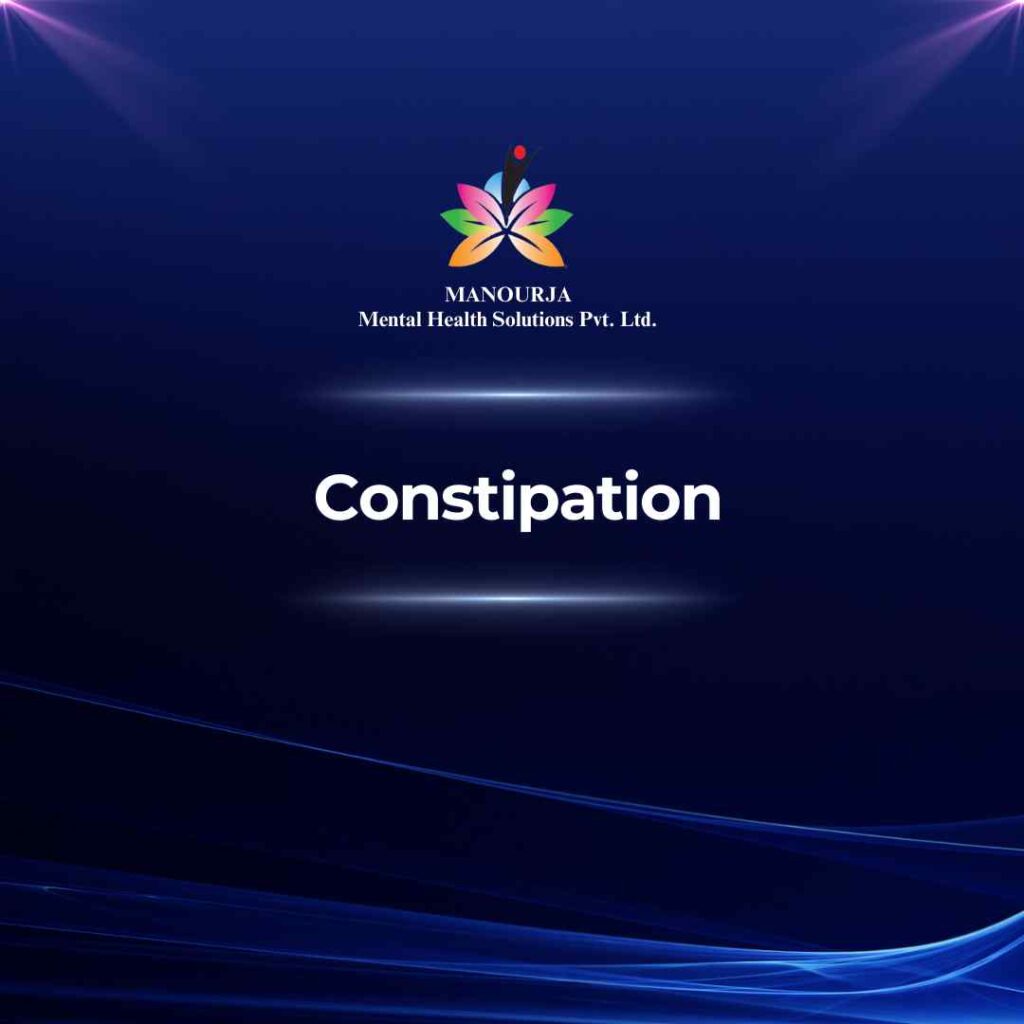Constipation

Constipation refers to infrequent bowel movements or difficulty passing stools, often associated with hard, dry stools that are difficult to eliminate. It can result from various factors, including inadequate dietary fiber intake, dehydration, lack of physical activity, certain medications, and underlying medical conditions affecting the gastrointestinal tract.
Constipation as a Symptom of Mental Illness
Constipation can be both a physical symptom and a psychosomatic manifestation of mental illness. While constipation itself is not a primary symptom of mental disorders, it can occur as a secondary effect of psychological distress, lifestyle factors, or medication side effects commonly associated with certain mental health conditions.
Mental Health Conditions Associated with Constipation
- Individuals experiencing depression may have altered gastrointestinal function due to changes in neurotransmitter levels and stress responses, leading to symptoms such as constipation. Additionally, lifestyle factors such as decreased physical activity and poor dietary habits can contribute to constipation in depressed individuals.
- Chronic stress and anxiety can affect the digestive system, leading to symptoms of constipation in some individuals. Heightened sympathetic nervous system activity during periods of anxiety may disrupt normal bowel function and slow down digestion.
- Eating disorders such as anorexia nervosa or bulimia nervosa can disrupt gastrointestinal motility and lead to constipation due to inadequate food intake, electrolyte imbalances, and laxative abuse.
Psychosomatic Disorders:
- Constipation can be a psychosomatic manifestation of underlying psychological distress or unresolved emotional issues, where psychological factors influence bowel function and contribute to gastrointestinal symptoms.
Medication Side Effects:
- Some psychotropic medications used to treat mental illness, such as certain antidepressants or antipsychotics, may have constipation as a common side effect. This can contribute to constipation in individuals receiving treatment for psychiatric conditions.
While constipation can occur in association with mental illness, it is essential to consider other factors such as diet, hydration, physical activity, and medical comorbidities when evaluating and managing constipation in individuals with mental health concerns. Treatment approaches may involve addressing underlying psychological factors, optimizing lifestyle habits, dietary modifications, medication adjustments, and medical interventions aimed at relieving constipation and promoting gastrointestinal health. Collaboration between mental health professionals and healthcare providers specializing in gastroenterology may be necessary for comprehensive care.
At MANOURJA, we believe in the transformative power of counseling. Our experienced therapists offer a safe and supportive space where you can explore your thoughts, emotions, and challenges. Through personalized counselling sessions, we’ll work together to develop coping strategies, build resilience, and achieve lasting positive change. Discover the path to a healthier, happier you with MANOURJA counselling services.
MANOURJA Rehabilitation Services
At MANOURJA, we’re dedicated to helping you in rebuild your life, after difficult times. Our rehabilitation services focus on understanding what you need to move forward, whether you’re recovering from addiction, trauma, or any psychological – social challenges. We create personalized plans, that are all about helping you, regain your strength and find hope again. With a caring team by your side, you’ll have the support to make real progress and take steps toward a brighter, healthier future.
